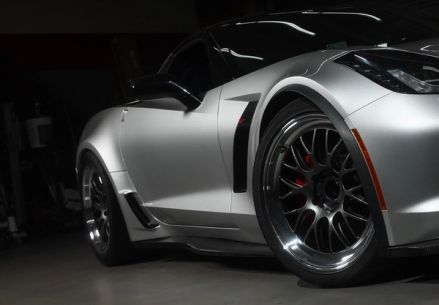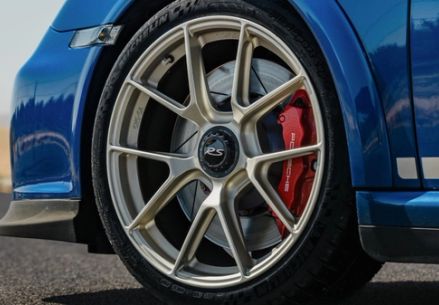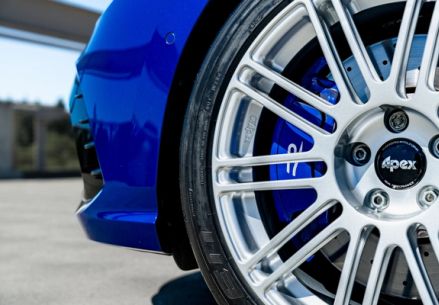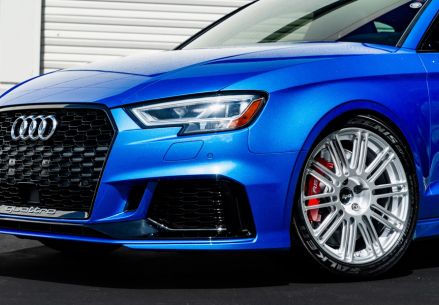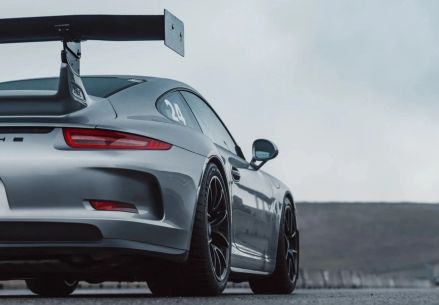
The Ultimate Honda Bolt Pattern & Centerbore Guide
Article | 09/22/2025 by Matt Thompson
Updated on 10/02/2025
If you’re new to shopping for aftermarket wheels, you may find yourself quickly overwhelmed by all of the different wheel measurements out there. While measurements such as wheel width and wheel diameter are the fun part, the necessary part of the puzzle is the bolt pattern and center bore. Honda has used quite a few different bolt patterns and center bore measurements over the years. However, there are some general rules that help make things easier. This guide will provide an in-depth breakdown of what bolt pattern and centerbore specific models and generations of Hondas use. If you’d like to view specific wheel fitments that we recommend for your Honda, be sure to review our Honda Wheel & Tire Fitment Guides.
If you need a refresher on what these terms mean, check out our Bolt Pattern & Center Bore Guide: What they are and how to measure them!
Honda Bolt Pattern and Center Bore: General Rules
There are some general rules that apply to most Honda models. While they are not always 100% consistent, they are a good way to provide high-level specifications at a quick glance.
With modern Honda cars, most ‘standard’ models utilize a 5x114.3mm bolt pattern. Think Civic, Accord, and even the HR-V. With the Type-R models and the larger SUVs/trucks that bolt pattern switches to 5x120mm. All modern Hondas utilize a 64.1mm center bore regardless of bolt pattern.
Honda Mounting Hardware Specifications
All Honda vehicles come equipped with pressed-in wheel studs from the factory. Meaning when you take your wheel off of the car, the wheel studs remain pressed into the hub and separate lug nuts are required to tighten that wheel down when it’s mounted onto the car.
Honda uses ball seat lug seats on its factory wheels. Thread pitch and stud thickness will vary, however most Hondas utilize M12x1.5mm wheel studs. Honda SUVs, trucks, and modern Type-R will utilize M14x1.5mm wheel studs. See the table below for a full reference. All Honda wheels that Apex produces are designed around 60° conical lug nuts. OEM lug nuts can not be re-used with Apex wheels.
Wheel spacers can be used with stock or aftermarket wheels to improve appearance and achieve a “flush” look. These can also be used to clear brake and suspension packages that a wheel/tire fitment ordinarily would not be able to clear. Spacers will require longer wheel studs to support the spacer’s additional width.
Honda Bolt Pattern, Center Bore, and Wheel Specs
| Year | Models | Chassis | Bolt Pattern | Center Bore | Lug Seat | Hardware Specs | Fitment Guide |
|---|---|---|---|---|---|---|---|
| 1992 - 1995 | Civic | 5th Gen | 4x100 | 56.1mm | Ball Seat | M12x1.5mm | N/A |
| 1996 - 2000 | Civic | 6th Gen | 4x100 | 56.1mm | Ball Seat | M12x1.5mm | N/A |
| 2002 - 2003 | Civic Si | EP3 | 4x100 | 56.1mm | Ball Seat | M12x1.5mm | N/A |
| 2004 - 2005 | Civic Si | EP3 | 5x114.3 | 64.1mm | Ball Seat | M12x1.5mm | Honda 7th Gen Civic Fitment Guide |
| 2006 - 2011 | Civic | 8th Gen | 5x114.3 | 64.1mm | Ball Seat | M12x1.5mm | Honda 8th Gen Civic Fitment Guide |
| 2012 - 2015 | Civic | 9th Gen | 5x114.3 | 64.1mm | Ball Seat | M12x1.5mm | Honda 9th Gen Civic Fitment Guide |
| 2016 - 2021 | Civic | 10th Gen | 5x114.3 | 64.1mm | Ball Seat | M12x1.5mm | Honda 10th Gen Civic Fitment Guide |
| 2022 - Current | Civic | 11th Gen | 5x114.3 | 64.1mm | Ball Seat | M12x1.5mm | Honda 11th Gen Civic Fitment Guide |
| 2017 - 2021 | Civic Type-R | FK8 | 5x120 | 64.1mm | Ball Seat | M14x1.5mm | Honda FK8 Civic Type R Fitment Guide |
| 2023 - Current | Civic Type-R | FL5 | 5x120 | 64.1mm | Ball Seat | M14x1.5mm | Honda FL5 Civic Type R Fitment Guide |
| 1992 - 1996 | Prelude | 4th Gen | 4x114.3 | 64.1mm | Ball Seat | M12x1.5mm | N/A |
| 1997 - 2001 | Prelude | 5th Gen | 5x114.3 | 64.1mm | Ball Seat | M12x1.5mm | N/A |
| 1999 - 2009 | S2000 | AP1 / AP2 | 5x114.3 | 70.1mm Front / 64.1mm Rear | Ball Seat | M12x1.5mm | Honda AP1 AP2 S2000 Fitment Guide |
| 1991 - 2006 | NSX | NA1 / NA2 | 5x114.3 | 70.1mm Front / 64.1mm Rear | Ball Seat | M12x1.5mm | N/A |
Notable Transitions
Many early model Hondas utilized 4-lug bolt patterns and smaller centerbores than their more modern counterparts. Most commonly these vehicles were equipped with 4x100mm bolt patterns and 56.1mm centerbores. There were some exceptions such as specific models of Prelude and Type-R that utilized 4x114.3 bolt patterns and 64.1mm centerbores. Honda mostly phased out 4-lug bolt patterns in favor of 5x114.3 until recently introducing 5x120 for the modern Type-R.
Notable Exceptions
Honda S2000 and NSX utilize two different centerbores, unique to these two cars. Up front they both utilize a 70.1mm centerbore and in the rear they use the more traditional Honda 64.1mm centerbore. The S2000 and first generation NSX have 5x114.3 bolt patterns while the second generation NSX has a 5x120 bolt pattern.
Import Models
As the wheel of time keeps ticking, more and more overseas exclusive Honda models are becoming legally available to import into the United States. There are some models that were strictly offered internationally such as the Honda Beat. However, there are also models that were offered under different badging depending on where they landed. Many Acura-badged models in the U.S. such as the Acura NSX, RSX, and TSX are called the Honda NSX, Integra, and Accord respectively. This guide will cover Honda badged models, but if you’re seeking more information on Acura models, stay tuned for more information on Acura models.
Frequently Asked Questions
Can I use aftermarket wheels on a Honda? Yes! At Apex, we offer plenty of OEM+ sizes as well as wider options for drivers looking for maximum performance.
Can I use my OEM Honda center caps with Apex wheels? In most cases, yes, you can reuse your OEM center caps. There are also many aftermarket Honda caps available online that will fit.
Can I use aftermarket lug nuts on my Honda? Yes, as most Hondas come with Ball Seat lug nuts from the factory, you’ll need to swap to 60° conical aftermarket lug nuts to mount aftermarket wheels on your Honda.
Do aftermarket wheels affect how much I should torque my wheels? No, you should always follow your manufacturer’s recommended torque specs unless you’re changing the wheel hardware size. Torque values are dictated more by the size of the wheel stud and lug nut than by whether the wheel is OEM or aftermarket
Tags
 Matt Thompson
Matt ThompsonMatt became the JDM Product Expert at APEX Wheels in 2022. Prior to joining APEX, he worked extensively in automotive sales. As an enthusiast he made the shift from street driving to track driving in order to fully experience his cars at the limit without putting the public at risk. Matt has owned six Hondas (‘94 Integra LS, ‘95 Integra RS, ‘96 Integra GS-R, ‘06 RSX Type-S, ‘95 Civic VX, ‘17 Civic EX-T), two Subarus (‘15 Impreza, ‘22 BRZ), and is likely shopping for the next addition to his stable. When he’s not helping JDM owners figure out the best wheel setups for their cars, he enjoys playing racing video games and indulging his interest in automotive photography. Fun fact: Matt knows every quotable line in The Fast and the Furious by heart.
Have questions about wheels for your JDM vehicle? Use our contact form and ask for Matt.
If you like cheap gear you will hate this newsletter.
